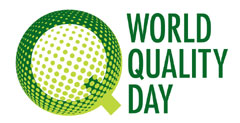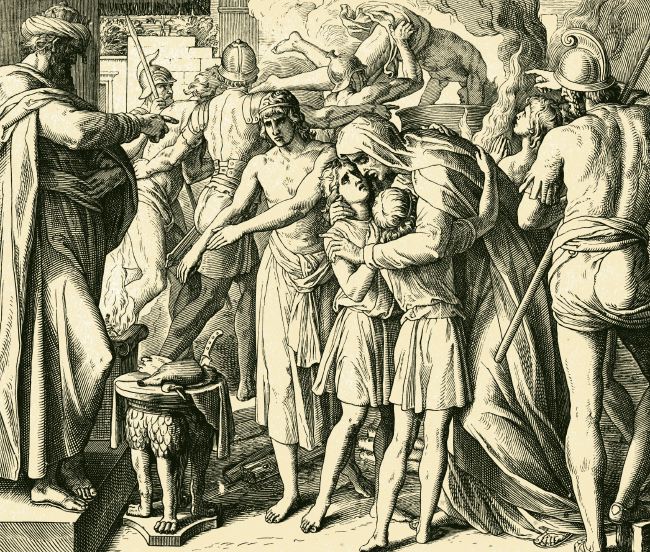Praying is known to be an activity essentially directed to… God. It seems obvious that when someone comes to God in prayer, praises, thanks, blessings, will be addressed to him.
It could be said that prayer is simply acknowledging who God is and… who we are.
Amazingly, the gospel text of this Sunday (30th, Year C – Lk.18:9-14) presents us with someone who had not understood this most basic lesson about prayer.
He is surely as convinced of the fact that he is praying as he is of being… the most deserving of God’s worshippers.
Jesus’ story is well known to us under the familiar title of: The parable of the Pharisee and the publican.
We know it well in its most colourful details, we even enjoy the caricatured description of the two personages.
The first one, a Pharisee, well respected in the Jewish community, comes before God to list – as if God had failed to notice – his many worthy actions that should win him God’s blessings. He does not fail to mention also how he carefully avoids any transgression of the Law.
Worse is to come. At this point in his prayer, the Pharisee starts looking down at the other man behind whom he despises for his last of respect for the Law. That publican has been judged and found wanting in the mind of the observant Pharisee.
The traditional roles of each of the two men are painted accurately. So far, Jesus’ listeners must follow him without difficulty while perhaps wondering where he is going with that story. It soon becomes very clear when Jesus concludes and says about the publican: “This man, I tell you, went home again at rights with God; the other did not.”
The Pharisee full of himself and boastful of all his qualities has not recognised God’s love and mercy who have brought him where he is. He thought he already had all he needed to have.
We may sometimes fail to understand that whatever we are and whatever we have managed to become is pure gift from God. We may be oblivious to all that we still need to be given so as to please God.
The publican stood before God – bowed before him – ready to be given, happy to receive God’s forgiveness and all the other gifts that God is eager to give to people like him.
For the Psalm assures us (Ps.34:18): “The Lord is near to the broken-hearted, he helps those whose spirit is crushed.” Happy are we if we remember this whenever we approach God in prayer…
Source: Image: www.pravoslavie.ru


 “The sun of righteousness will shine with healing in its rays.”
“The sun of righteousness will shine with healing in its rays.”

 ”I promise you, I will…” A promise – we may be the one speaking the words. Or, someone else may be assuring us that he will do something for us, she will carry out something on our behalf. If the person speaking is trustworthy, we can hope that we will get what is promised. If he or she is reliable, we may expect that we will obtain whatever we have been told would be done or given.
”I promise you, I will…” A promise – we may be the one speaking the words. Or, someone else may be assuring us that he will do something for us, she will carry out something on our behalf. If the person speaking is trustworthy, we can hope that we will get what is promised. If he or she is reliable, we may expect that we will obtain whatever we have been told would be done or given. He was well-known, yes, he had a reputation, but not one to be envied. He was despised by his people for being a publican. As such, he was collecting the taxes from his fellow-Jews to the benefit of the hated power of occupation – the Romans. He was clever and knew how to profit from his post. He was a wealthy man and enjoyed his situation. Such was Zacchaeus (Lk.19:1-10).
He was well-known, yes, he had a reputation, but not one to be envied. He was despised by his people for being a publican. As such, he was collecting the taxes from his fellow-Jews to the benefit of the hated power of occupation – the Romans. He was clever and knew how to profit from his post. He was a wealthy man and enjoyed his situation. Such was Zacchaeus (Lk.19:1-10).
 Have you ever tried to obtain something from someone who showed no interest in your request? Worse still the person was not interested in YOU! This can be a most frustrating situation as many of us have made the experience. In such a situation, some people will simply walk away convinced that there is nothing to be done. Others, of a more stubborn inclination, will keep on asking, determined to get what they want. They will keep on begging and literally ‘pestering’ the one from whom they expect to get something.
Have you ever tried to obtain something from someone who showed no interest in your request? Worse still the person was not interested in YOU! This can be a most frustrating situation as many of us have made the experience. In such a situation, some people will simply walk away convinced that there is nothing to be done. Others, of a more stubborn inclination, will keep on asking, determined to get what they want. They will keep on begging and literally ‘pestering’ the one from whom they expect to get something.